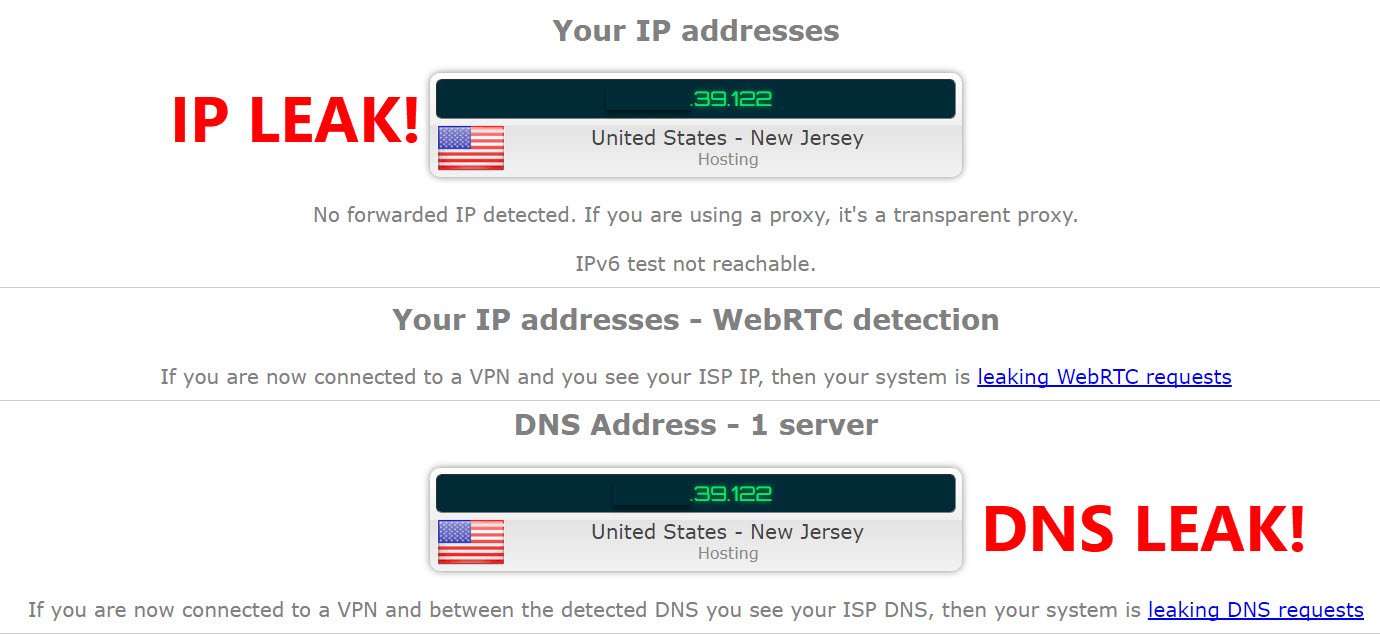VPNs are essential nowadays, and it adds an extra layer of security over your network. Some of us even use VPN services to access blocked websites.
Reason Behind IP Address Leaking
Well, most of the modern web browsers like Google Chrome, Firefox, Opera, etc. now have a built-in feature known as WebRTC. WebRTC or Web Real-Time Communication helps site owners implement communication services like file sharing, video/voice calls, chats, etc. Some website owners take advantage of Web Real-Time Communication or WebRTC to bypass VPN and detect the original IP Address.
This is the most probable reason behind the IP Address leaks while connected to the VPN. So, now that you are well aware of the IP Address leaking let’s know how to check if your VPN is leaking your IP Address or not.
How to Check for IP Address Leak
We are pretty sure that not everyone is 100& sure about the IP address leak issue. You will never know whether your VPN is leaking the real IP address or not. So, in that case, you should always check for IP Address leaks before relying upon the VPN entirely. Follow some of the simple steps given below to check for IP Address leaks.
The ultimate goal is to make sure the IPs are different when connected and when disconnected.
So, in short, VPNs are used to mask the IP address. By masking, it ensures that your real IP address is hidden from the web trackers and third-parties.
However, free VPNs are prone to IP leaks. Now you all might be wondering what IP Leak is? Well, in simple words, IP leaks happen when a user’s computer access default servers rather than via the anonymous VPN servers. IP leaks can happen anytime, and it mostly seen on free VPN services.
Most of the modern VPN software like NordVPN, ExpressVPN, etc. have already upgraded their software to reduce the IP leaks. IP Leaks usually caused due to loopholes in browsers, plug-ins, or extensions.
However, free VPNs are prone to IP leaks. Now you all might be wondering what IP Leak is? Well, in simple words, IP leaks happen when a user’s computer access default servers rather than via the anonymous VPN servers. IP leaks can happen anytime, and it mostly seen on free VPN services.
Most of the modern VPN software like NordVPN, ExpressVPN, etc. have already upgraded their software to reduce the IP leaks. IP Leaks usually caused due to loopholes in browsers, plug-ins, or extensions.
Reason Behind IP Address Leaking
Well, most of the modern web browsers like Google Chrome, Firefox, Opera, etc. now have a built-in feature known as WebRTC. WebRTC or Web Real-Time Communication helps site owners implement communication services like file sharing, video/voice calls, chats, etc. Some website owners take advantage of Web Real-Time Communication or WebRTC to bypass VPN and detect the original IP Address.
This is the most probable reason behind the IP Address leaks while connected to the VPN. So, now that you are well aware of the IP Address leaking let’s know how to check if your VPN is leaking your IP Address or not.
How to Check for IP Address Leak
We are pretty sure that not everyone is 100& sure about the IP address leak issue. You will never know whether your VPN is leaking the real IP address or not. So, in that case, you should always check for IP Address leaks before relying upon the VPN entirely. Follow some of the simple steps given below to check for IP Address leaks.
- First of all, you need to know your actual IP Adress.
- To know the actual IP address, Disconnect the VPN service
- Now head to this site.
- The above site will show you the IP Address. Note it down on a notepad.
- Now sign in with the VPN and connect to any server
- Now revisit this site – https://www.purevpn.com/what-is-my-ip
The ultimate goal is to make sure the IPs are different when connected and when disconnected.

